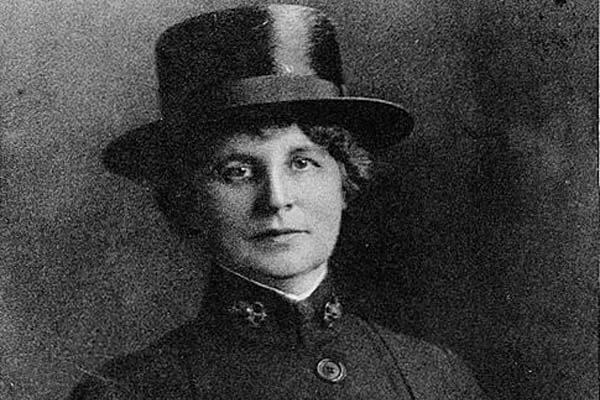Navy Secretary Ray Mabus appeared at the Iwo Jima Memorial Tuesday night to honor the women who staffed and participated in the Marine Corps' research on women in combat and to announce the naming of a new Navy Arleigh-Burke Class guided missile destroyer.
DDG 123 will be named the USS Lenah H. Sutcliffe Higbee, Mabus announced, after a Navy nurse who served as superintendent of the Navy Nurse Corps during World War I, and was the only living woman to receive the prestigious Navy Cross medal.
The contract for the $673 million destroyer in March was awarded to Ingalls Shipbuilding, a unit of Huntington Ingalls Industries Inc. The ship, expected to enter the fleet in 2024, will be the second named for Higbee; the first was a Gearing-Class destroyer in service for the Navy from 1945-1979.
"In the Navy, per traditional ship-naming convention, our guided missile destroyers, DDGs, are named after heroes," Mabus said in prepared remarks.
"As someone who defied traditional roles and made her own path because she wanted to serve, Lenah Sutcliffe Higbee's devotion to this country through the First World War laid critical groundwork for women in uniform today, and solidified her place in history as a true American hero," he added.
Mabus praised the contributions of women to the Navy and Marine Corps, highlighting the sacrifices of troops including Cpl. Holly Charette, the first female Marine to be killed in Iraq in 2005 when a vehicle carrying explosives struck her vehicle, and Maj. Megan McClung, who was killed in 2006 in Ramadi, Iraq, when her Humvee hit an improvised explosive device.
"American women have, time and again, proven their ability, tenacity and courage," the secretary said. "And they have and will continue to make our fighting force stronger through their actions."
Mabus also thanked participants in the Marines' Ground Combat Element Integrated Task Force, a nearly year-long initiative in 2014 and 2015 to gather data on the impacts of women serving in previously closed ground combat jobs.
When task force data released by the Marine Corps showed that teams with female members were more injury prone, slower, and less accurate than all-male teams, Mabus was quick to publicly voice his displeasure.
In a September 2015 interview with National Public Radio, Mabus said the task force should have solicited more physically capable female Marines, and suggested the organizers of the task force had been expecting women to fail.
"It started out with a fairly large component of the men thinking 'this is not a good idea,' and 'women will never be able to do this,'" he said at the time. "When you start out with that mindset, you're almost presupposing the outcome."
Mabus struck a gentler note, however, in his remarks Tuesday night.
"We are here tonight to say thank you to everyone who has had a role to play in the full integration of women into our armed services," he said. "To the participants in the Marine Corps' Ground Combat Element Integrated Task Force, to the people who I know were in the Pentagon during the holidays working around the clock to craft the policy change: your work was instrumental in eliminating yet another needless barrier."
Mabus, who is wrapping up a seven-year tenure as secretary of the Navy, said he had traveled more than 1.2 million miles around the globe to visit Marines and sailors where they were stationed and speak to them about their concerns.
"I've spoken with sailors and Marines about being deployed, about what sustains them throughout deployments, and about what drives them to be so good at what they do," he said. "And that spirit is not about gender, race or who you love; it's about selflessness and character - something hard to miss on an evening like tonight."
-- Hope Hodge Seck can be reached at hope.seck@military.com. Follow her on Twitter at @HopeSeck.
Related Video:
Two Minute Brief: Women in the U.S. Military




























